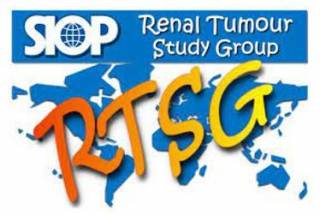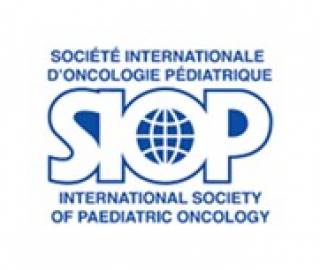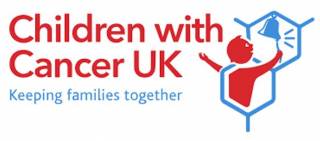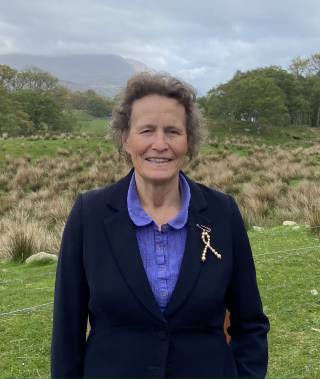Professor of Paediatric Oncology at University College London (UCL) Great Ormond Street Institute of Child Health, London, UK.
Internationally recognised expert in childhood cancer, with extensive experience of leading multi-centre and international clinical trials and translational research. Active work with epidemiologists and health care data scientists for international benchmarking and outcomes research.
- Improving Population Outcomes for Renal Tumours of Childhood Study - UMBRELLA Study
The UMBRELLA study (previously named IMPORT) aims to improve short and long term outcomes for children and young people with Wilms Tumour (WT) and other childhood renal tumours including Clear Cell Sarcoma of the Kidney (CCSK), Renal Cell Carcinoma (RCC), Rhabdoid Tumour of the Kidney, (RTK), Cystic Partially Differentiated Nephroblastoma (CPDN), Mesoblastic Nephroma (MN), and other rare tumour types, by testing the feasibility of introducing a more ‘personalised’ approach to risk stratification.
In conjunction with collaborating partners the study will identify and refine new biomarkers (molecular, proteomic and imaging defined) for the management of the whole spectrum of childhood renal tumours, including high risk tumours.
In this study we investigate the biological characterisation of tumour, blood (plasma) and urine samples to better define the molecular pathways involved, particularly in high risk, ‘blastemal type’ Wilms tumour. Central review of tumour pathology and of imaging studies (scans) are performed in ‘real time’, to standardise assessment of diagnosis and response to treatment.
The outcome of the UMBRELLA study will lay the foundations for planning the inclusion of biomarkers into clinical risk stratification in future SIOP RTSG clinical trials. These are expected to incorporate more personalised assessment of relapse risk versus first line therapy burden.
Background
In the UK 80-85 renal tumours are diagnosed each year in children under the age of 5 years. Even though overall survival for these patients is around 90%, about 10% of patients relapse and for this group overall survival stands at about 60%. One of the aims in the UMBRELLA study is to determine which biomarker serves as a prognostic marker that aids in the determination of the burden of disease at diagnosis so that the appropriate treatment can be administered as early as possible with the aim to cure and to avoid relapses. Currently as per SIOP treatment guidelines, staging depends on the pathology of the disease at surgery which occurs at about 6 weeks post diagnosis and after a course of 2 or 3 (for metastatic disease) drug chemotherapy. Thereafter depending on the histology and local stage the appropriate post-operative chemotherapy regimen is given. We are looking into biological and radiological biomarkers that might give us an indication of histology and staging at the time of diagnosis and prior to surgery.
Long term side effects from chemo- and radiotherapy can also have an impact on the survivors’ lives and therefore we would like to look into kinder treatment options for patients who have low to intermediate risk disease.
In conjunction with the Sanger Institute’s Dr Sam Behjati’s group we are performing whole genome sequencing of the tumours and bloods of these patients to understand the origin and genetic landscape of the disease.
For more information and enquires please contact the please contact the STUDY INBOX.
Newsletters
- International Benchmarking of Childhood Cancer Survival by Stage - BENCHISTA Study
The International Benchmarking of Childhood Cancer Survival by Stage Project also called BENCHISTA Project, is a research collaboration between multiple population-based cancer registries (PBCRs) within and outside Europe.
The project aims to improve understanding of the reasons for variation in childhood cancer survival between countries and to highlight areas that need to be targeted for improvement. Also, to encourage the application of the Toronto Staging Guidelines (TG) by several European and non-European cancer registries (PBCRs) for the most common solid paediatric cancers.
The project focuses on six solid tumours: Medulloblastoma, Osteosarcoma, Ewing sarcoma, Rhabdomyosarcoma, Neuroblastoma, and Wilms Tumour. More than 60 CRs will collect information from these types of tumours, diagnosed between 2014-2017, will assign the Toronto Stage at diagnosis and collect other relevant data about the tumour prognosis and survival.
All data will be collected under strict principles of data security, confidentiality, and data safety procedures. The PBCRs will provide the data directly to the data controller who will oversee and store the information in line with General Data Protection Regulations (GDPR) and pertinent laws to ensure data is protected.
For more information, please visit the BENCHISTA webpage.
Newsletters
- Group Members
Ms Reem Al-Saadi
Senior Traslational Reserach Manager, University College London, Great Ormond Street Hospital for Children NHS Trust
reem.al-saadi@ucl.ac.uk
UCL Profiles page: Reem Al-SaadiMiss Angela Lopez-Cortes
Research Fellow - Project Manager, Benchista Project
angela.lopez@ucl.ac.ukMr Guillaume Morcrette
Pathologist
g.morcrette@ucl.ac.uk- Collaborators and Funders
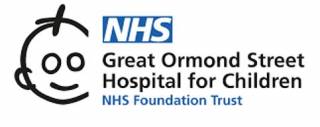
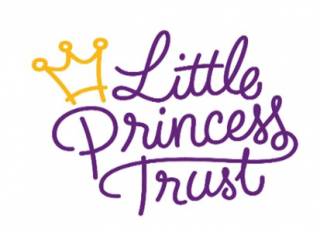
- Publications
For a current publication list please visit Professor Kathy Pritchard-Jones' ORCiD Page
 Close
Close



